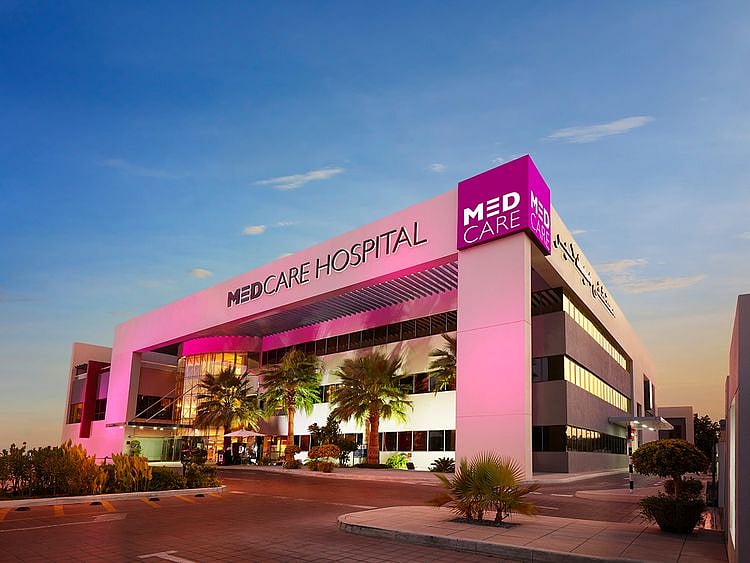Don’t let heartburn control your life
If indigestion and acidity become frequent and severe, see a doctor, say Medcare experts

With today’s fast-paced lifestyle, many of us rush down food and grab a coffee to keep us going through the day. However, it’s time to take stock and reconsider these choices. Smoking, eating fatty or fried food, and drinking coffee and alcohol are all risk factors for developing various illnesses, including gastroesophageal reflux disease (GERD).
“Gastroesophageal reflux disease, or GERD, is a chronic condition that occurs when stomach acid rises to the oesophagus,” explains Dr Emad Fayyad, a Consultant Gastroenterologist at Medcare Hospital Al Safa. “Recurring acid reflux can progress to GERD. Many risk factors can trigger repetitive acid reflux, such as obesity, hiatus hernia, pregnancy, smoking, delayed stomach emptying, drinking coffee and alcohol, eating large meals, or eating late at night.”
As with any disease, prevention is key, and since a large proportion of residents in the UAE are estimated to suffer from GERD, it would be wise to re-evaluate any bad lifestyle choices.
“The UAE has recently seen a rise in cases of GERD,” says Dr Kote Shamsheer, a Gastroenterology Consultant at Medcare Hospital Al Safa. “The exact prevalence of GERD is not fully known as most of the collected data is grouped for the whole of the Middle East. However, the prevalence rates in the Middle East are up to 33 per cent.
“The prevalence in the UAE can still be estimated to be high, without the actual numbers, by focusing on the prevalence of risk factors for GERD. Approximately 12.8 per cent of the UAE’s adult population smokes, and since smoking increases the risk of GERD, a correlation can be made between the prevalence rates of the latter.”
Due to the rise in cases and so many being at risk, it is important to be aware of the common symptoms of GERD.
Dr Shamseer says, “The most common symptoms of GERD include heartburn, a burning sensation in the chest, mostly after eating triggering foods. There can also be worsening heartburn while lying down or at night and a sour liquid in the mouth due to indigestion. Other symptoms include food regurgitation, chest pain, upper abdominal pain, a lump-like sensation in the throat which causes difficulty swallowing food and a hoarseness of voice, especially in the morning.”
The difficulty with GERD is that there are many misconceptions, and symptoms can easily be passed off as indigestion or heartburn, but they are, in fact, quite different.
Dr Emad Fayyad explains, “GERD, acidity and indigestion are quite similar yet very different. Indigestion or heartburn are used synonymously, referring to the feeling of acid in the oesophagus. The burning sensation is often followed by a heavy meal. Acidity is the backflow of stomach acid to the oesophagus. If acidity becomes persistent, then it can progress to GERD.”
To stop any worsening of symptoms, it is crucial to make those lifestyle changes as this can avoid exacerbation of the disease.
“The progression of acid reflux to GERD can be controlled through lifestyle changes, especially dietary changes,” adds Dr Shamsheer. “It is important to stop consuming foods that trigger your GERD, such as chocolate, spicy food, fried food, and beverages such as coffee and alcohol. Consuming these foods despite the acidity can cause the progression of the condition to severe GERD.”
Leaving the condition untreated could lead to complications, and another reason why measures should be taken before it is too late and any damage is done.
“The backflow of stomach acid, over time, can damage the inner lining of the oesophagus, and this damage can present as esophagitis, which is inflammation of the oesophagus, a narrowing of the oesophagus, making it difficult to swallow food properly and Barret’s Oesophagus, which is a precancerous change to the oesophagus,” he explains.
The good news is that treatment is available for the different stages of GERD. At Medcare Hospital Al Safa, they tailor the treatment depending on the severity of the disease.
“Treatment for GERD depends on the stage,” Dr Shamsheer says. “In the early stages, medications such as antacids and proton pump inhibitors are enough to manage the symptoms successfully. In severe cases, surgical treatment is required to alleviate the symptoms of GERD.
“Medcare Hospital Al Safa is fully equipped with the tools and techniques required to successfully manage advanced cases of GERD surgically. Our expert gastroenterologists work closely with the patients to accurately and successfully manage their symptoms, either with medications or surgery.”
With state-of-the-art treatments available, there is no need to suffer in silence. If you have regular bouts of indigestion and heartburn, it is time to seek medical help.
“It is important to see a doctor when you realise that the symptoms are becoming more frequent and severe,” says Dr Fayyad. “If you take over-the-counter medications for your heartburn at least twice a week, a visit to the doctor is needed because it is a sign that your acidity is progressing to GERD.”
Sign up for the Daily Briefing
Get the latest news and updates straight to your inbox
Network Links
GN StoreDownload our app
© Al Nisr Publishing LLC 2026. All rights reserved.